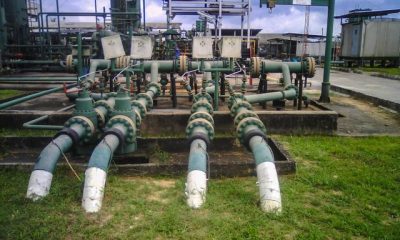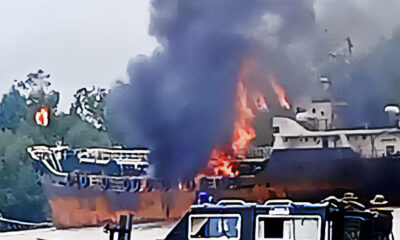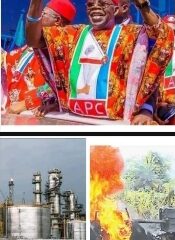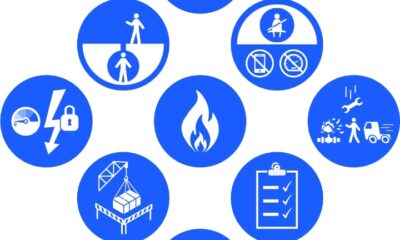IduwiniVoice Knowledge
Do You Know What a Barrel of Crude Oil Contains?
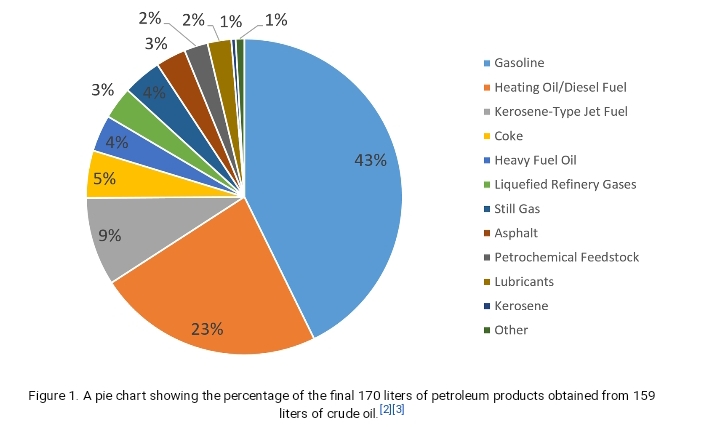
By Prince (Dr.) Peretengboro K. Bibaikefie
A single barrel of crude oil – once it has been refined – can yield a large number of different, useful petroleum products. The ability to obtain products like gasoline, asphalt, and propane from a single product is part of what makes refining such a vital process. The refining process separates these different hydrocarbons in a number of different ways, one major way being separation by boiling point gradients in a fractional distillation tower.
Products of the Refining Process
When crude oil is input into a fractional distillation tower, there is an overall increase in volume of product. If a single barrel of crude oil – equal to about 159 liters – were refined, the volume of the final products is actually greater than the volume of the initial crude oil.
In fact, 170 liters of refined petroleum products can be obtained from 159 liters of crude oil.
There is an increase in volume through the refining process as a result of an effect known as processing gain.
What is Processing Gain?
Processing gain simply refers to the volume by which output increases compared to input that occurs as a result of processed petroleum products having a lower specific gravity than the initial crude oil. This results in the final products “requiring more storage space” than the initial crude oil.
Each product obtained from the refining process is collected in different amounts. The percentage of the final 170 liter volume that each product makes up is shown in the attached pie chart.
From the image, it is apparent that vehicle fuels (petrol, gasoline or premium motor spirit) make up a large portion of the final product.
In liters;
1. Gasoline makes up about 73 liters of the final 170,
2. Diesel oil and heating oil make up about 40 liters,
3. Aviation Kerosene make up about 15.5 liters.
Despite the fact that these numbers are comparatively large, it does not mean that the other products are not useful. For example;
4. Petrochemical feedstocks make up only 4.2 liters of the final 170, however they are used to make a variety of different products from pharmaceuticals to plastics. More information about the vast number of products that can be created with petrochemical feedstocks can be found in our other publications.
Other products, including still gas, petroleum gas, heavy fuel oil, asphalt, lubricants, aviation gasoline, naphthalene, and waxes make up a fairly small amount of the final product but are widely useful in a number of different applications.
Wait for more from IduwiniVoice.
Source: https://energyeducation.ca/encyclopedia/In_a_barrel_of_oil

IduwiniVoice Knowledge
A Colossus of the Seas: Remembering the Seawise Giant
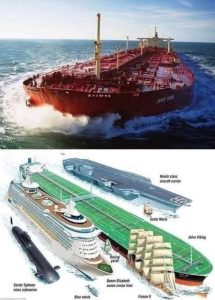
By Perezide, Maritime Weekly
At a time when shipbuilding pushed the boundaries of what was thought possible, one vessel stood above the rest-literally. The Seawise Giant, later known as the Knock Nevis, holds the distinction of being the longest ship ever conducted, an awe-inspiring example of Maritime engineering, (Measuring an extraordinary 1,504 feet (458 meters) from bow to stern, the supertanker was longer than the Empire State building is tall.
Commissioned in 1979 and decommissioned in 2009, the Seawise Giant was a floating titan with capabilities that redefined global shipping. Designed to carry crude oil, it could transport more than 4 million barrels in a single voyage nearly -5% of the world’s daily oil consumption. It’s vast size, however, made it an outlier: it was too large to navigate the Size Canal or even the English Channel, restricting it to only the deepest and broadest stretches of ocean.
More than just a behemoth, the vessel was a fortress of steel. It’s hull was heavily reinforced, and it was equipped with multiple watertight components and built-in safety redundancies. This formidable structure made it extraordinarily resistant to damage, leading to speculation about how it would fare in a hypothetical battle against an aircraft carrier. While not invincible, bringing it down would have demanded precise targeting, immense firepower, and considerable efforts.
Though it’s operational life has ended, the legacy of the Seawordment endures. It remains a symbol of industrial ambition and the limits of naval architecture. I a world increasingly focused on efficiency and sustainability, the Seawise Giant stand’s as a monumental chapter in Maritime history -an enduring reminder of humanity’s reach across the oceans.
Advert
Video: House of Representatives Committee Proposes Creation of 31 New States in Nigeria
By Admin
Abuja – A proposal to create 31 additional states across Nigeria is currently under consideration by the House of Representatives Committee on Constitutional Review. According to the committee, the move aims to address concerns about representation, governance, and regional development across the country.
The proposed states are distributed across various geopolitical zones, with six states suggested for the North-Central region, four for the North-East, five for the North-West, five for the South-South, and seven for the South-West. The committee has indicated that the proposal is in line with Section 8(1) of the Nigerian Constitution, which outlines the requirements for state creation.
Proposed States by Region
North-Central
1. Benue Ala (Benue)
2. Okun (Kogi)
3. Okura (Kogi)
4. Confluence (Kogi)
5. Apa-Agba (Benue South Senatorial District)
6. Apa (Benue)
7. Federal Capital Territory, Abuja (as an autonomous state)
North-East
8. Amana (Adamawa)
9. Katagum (Bauchi)
10. Savannah (Borno)
11. Muri (Taraba)
North-West
12. New Kaduna (Kaduna)
13. Gurara (Kaduna)
14. Tiga (Kano)
15. Kainji (Kebbi)
16. Ghari (Kano)
South-East
17. Etiti (New)
18. Adada (Enugu)
19. Urashi (New)
20. Orlu (Imo)
21. Aba (Abia)
South-South
22. Ogoja (Cross River)
23. Warri (Delta)
24. Bori (Rivers)
25. Obolo (Rivers & Akwa Ibom), possibly a renamed Oil Rivers State
South-West
26. Toru-Ebe (Delta, Edo & Ondo)
27. Ibadan (Oyo)
28. Lagoon (Lagos & Ogun)
29. Ibeju (Ogun)
30. Ife-Ijesha (Ogun, Oyo & Osun)
31. Oke-Ogun (Ogun, Oyo & Osun)
Constitutional Process for State Creation
The proposal will require approval through a series of legislative steps. The Nigerian Constitution stipulates that for a new state to be established, it must be supported by at least a two-thirds majority in the National Assembly, the State House of Assembly, and local government councils in the affected areas. Additionally, a referendum will be conducted, with the final decision forwarded to the National Assembly for ratification.
This proposed restructuring has generated mixed reactions, with some viewing it as a step toward decentralization and regional autonomy, while others question its feasibility given Nigeria’s economic and political landscape.
What are your thoughts on this development? Share your views!
Advert
INC Demands the Creation of Toru-ebe and Oil Rivers States to Address the Underdevelopment of Ijaw Nation.
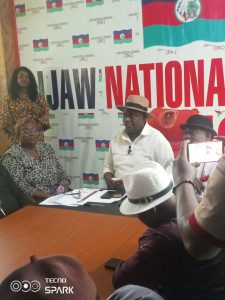
By Admin – Yenagoa
Ijaw National Congress (INC), the highest socio-cultural body representing the Ijaw people globally, has renewed its call for the establishment of two homogeneous Ijaw states—Toru-Ebe and Oil Rivers—citing persistent infrastructural under-development, political marginalization, and environmental neglect.
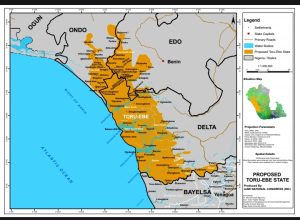
This was disclosed during a press conference held on Wednesday at Ijaw Ware in Yenagoa, Bayelsa State. The INC President, Prof. Benjamin Okaba, emphasized that despite being Nigeria’s fourth-largest ethnic group and hosting some of the country’s key oil export terminals as the single highest producer of oil and gas, the Ijaw people have endured systemic neglect, both in infrastructure and politics.
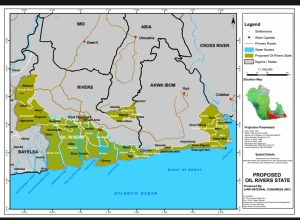
“We call on the Senate President, the Speaker of the House of Representatives, and all distinguished members of the National Assembly to seize this moment in history and act in the interest of justice,” Prof. Okaba stated.
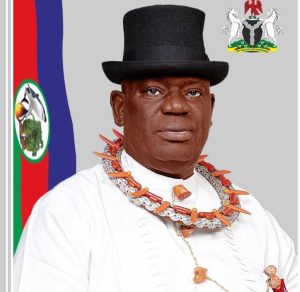
He described this demand as a crucial step toward achieving justice, equity, and lasting peace in the Niger Delta, stressing that it would help redress historical injustices, drive economic progress, and secure a better future for the Ijaw people.
According to the INC, the creation of the proposed states would not only address issues of political exclusion and under-development, but also strengthen national unity. The organization urged all Ijaw people, along with other well-meaning Nigerians, to support the move towards the actualization of this critical milestone for fairness and equity.
